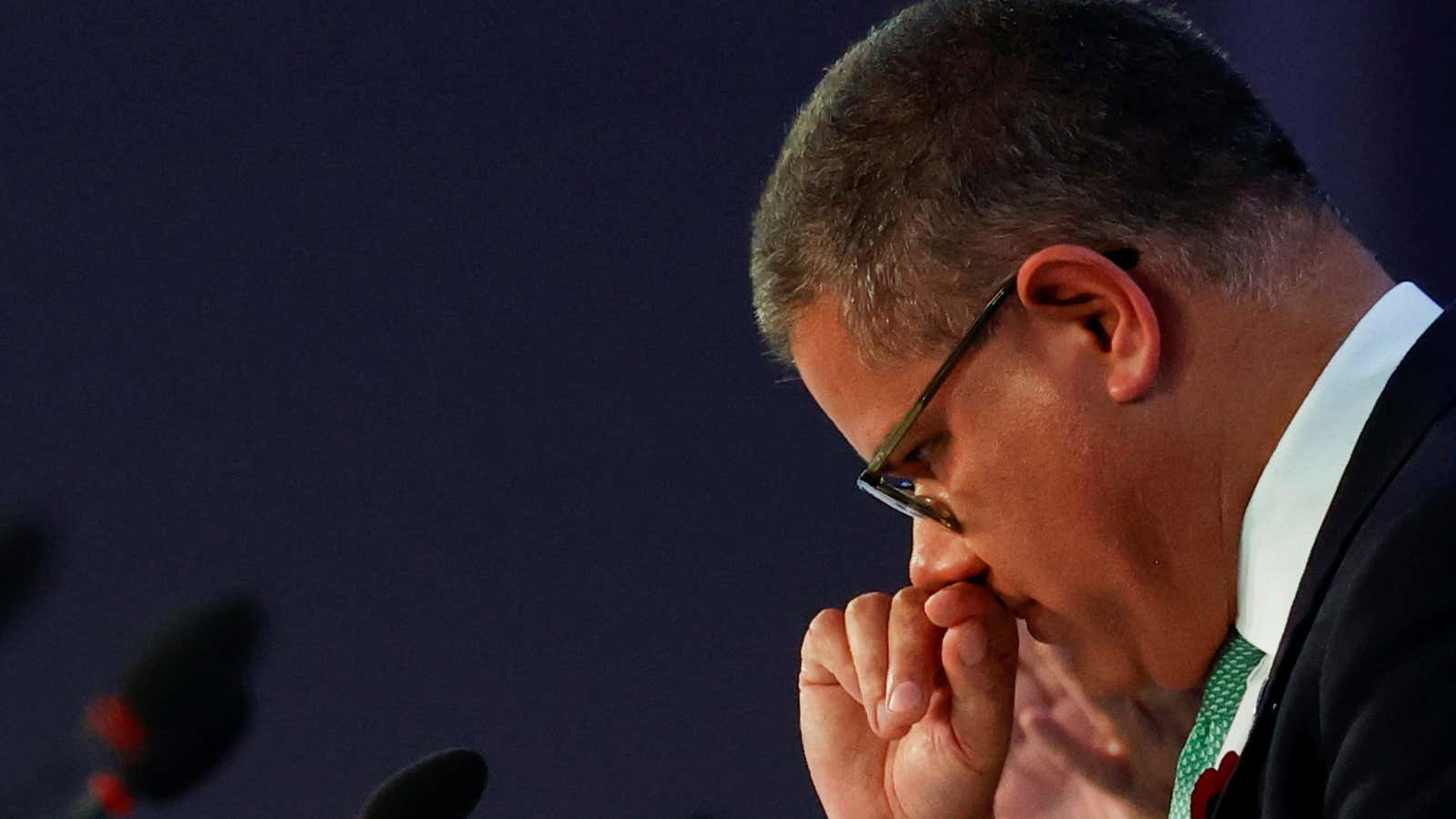At the beginning of COP26, over 25 African leaders spoke in Glasgow to demand climate justice. Despite calls for climate finance, funding for adaptation, and drastic emission cuts from rich nations, few of their requests feature in the final agreement, announced on 13 November.
Rich nations have failed to meet their pledge to pay $100 billion a year by 2020 to poor countries. It is expected to be reached by 2023. While the target will be missed, more money has been promised, with COP26’s president, Alok Sharma, saying around $500 billion would be mobilized by 2025. Nations have also been urged to double the proportion of climate finance going to adaptation.
However, this still falls far short of the $1.3 trillion that African negotiators wanted – and what is estimated that the continent could face in climate change-related costs.
“It is saddening to learn that the ‘wealthy’ nations have failed short by nearly $20 billion of their pledge to contribute $100 billion per year by 2020 to assist vulnerable countries—most of which are in Africa—to cope with the challenges of climate change,” says Victor Ongoma, a professor in climate change based in Morocco. “This is a big setback especially at a time when most developing countries are facing socioeconomic challenges posed by covid-19.”
Funding for damage caused by climate change in Africa is still insufficient
Many African delegates, including Guinea and Kenya, similarly expressed ‘extreme disappointment’ on the outcome around loss and damage (which is distinct from the $1.3 trillion ask.) While experts estimate that the damage already caused by climate change across Africa could go into the trillions of dollars, the final deal excludes specific funding for this. Instead, the deal outlines plans to fund the Santiago network, a body that aims to build technical expertise on dealing with loss and damage.
A tweet by Vanessa Nakate, a Ugandan climate activist is quite telling, stating, “COP26 was nearly a breakthrough moment for loss and damage.”
While African leaders also called upon high emitting countries to drastically cut their emissions, current pledges indicate global heating could soar to 2.4C. The World Meteorological Organisation has warned that scenarios ranging from a 1°C to a 4°C increase relative to pre-industrial levels could reduce the continent’s overall GDP by 2.25% to 12.12%.
In a bid to keep the 1.5C target alive, the pact has requested countries to increase their ambition on cuts by next year.
However, for the first time, the deal has committed to phase out some fossil fuels subsidies and reduce coal. South Africa, one of the top coal producers in the world, will receive $8.5 billion to transition to renewable energy.
$1.5 billion has similarly been pledged to protect and restore the Congo Basin, which is home to the second largest tropical forest in the world and absorbs 4% of global carbon emissions annually. This is part of the wider deal by 100 nations to halt and reverse deforestation by 2030.
“We must acknowledge that although this has been a fragile, imperfect agreement, progress has been made,” said Prabhat Upadhyaya, Senior Policy Analyst, WWF South Africa. “A lot of contentious issues were resolved.”
As the pact has been hailed as a ‘fragile win,’ eyes are already turning towards next year’s COP in Egypt.
“We are delighted that it will be in Africa – and it is already being called the adaptation COP,” Wanjira Mathai, vice president and regional director for Africa at World Resources Institute told Quartz. “We are hopeful that the issues important to vulnerable countries will get more prominence and visibility there.”
Sign up to the Quartz Africa Weekly Brief here for news and analysis on African business, tech, and innovation in your inbox.
